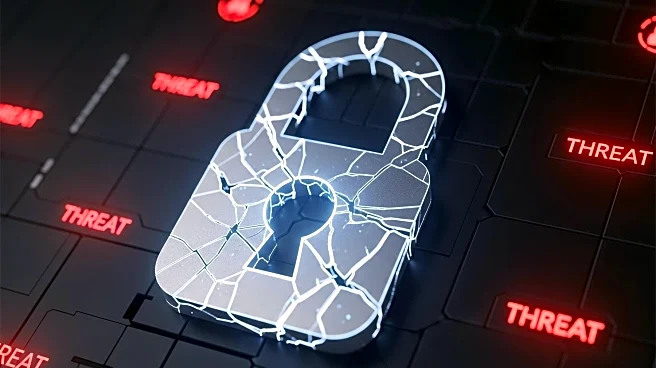What is the story about?
What's Happening?
The cybersecurity industry is experiencing a significant increase in burnout among professionals, as highlighted by recent data from ISC2, a membership organization for cybersecurity professionals. The annual Workforce Study revealed a decline in job satisfaction, with a 66% favorable rate in 2024, down from the previous year. The industry is under immense pressure due to the increasing frequency and severity of cyberattacks, including those backed by nation-states. Professionals are often required to work beyond regular hours, contributing to stress and job dissatisfaction. The situation is exacerbated by the aggressive tactics of hackers targeting critical infrastructure and health organizations, as well as the high turnover rates in entry-level roles.
Why It's Important?
The growing burnout crisis in cybersecurity has significant implications for both the industry and broader society. As cyber threats become more sophisticated and frequent, the demand for skilled cybersecurity professionals increases. However, the high levels of stress and burnout could lead to a shortage of experienced personnel, potentially compromising the ability of organizations to defend against cyberattacks. This situation poses a risk to national security, economic stability, and public safety, as cyberattacks can disrupt essential services and steal sensitive information. Addressing burnout is crucial to maintaining a robust cybersecurity workforce capable of protecting against evolving threats.
What's Next?
Organizations and industry leaders are likely to explore strategies to mitigate burnout among cybersecurity professionals. This may include implementing policies to ensure better work-life balance, providing mental health support, and developing training programs to help professionals manage stress. Additionally, there may be calls for legislative measures to protect cybersecurity workers, similar to those in place for other high-stress professions like air traffic controllers and doctors. As the industry seeks solutions, collaboration between public and private sectors will be essential to address the root causes of burnout and ensure the sustainability of the cybersecurity workforce.
Beyond the Headlines
The burnout crisis in cybersecurity also highlights broader issues related to workplace culture and the increasing demands placed on employees in the digital age. The industry's 'always-on' mentality, driven by the constant threat of cyberattacks, reflects a wider trend of blurred boundaries between work and personal life. This situation raises ethical questions about employee well-being and the responsibility of employers to create supportive work environments. As society becomes more reliant on digital infrastructure, the need for a sustainable approach to cybersecurity becomes increasingly urgent.














